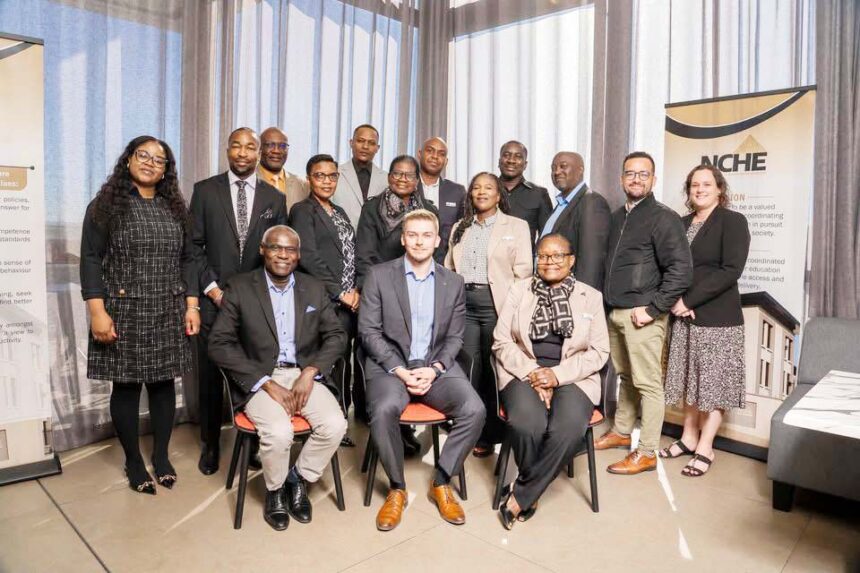With a massive oil and gas discovery in the Orange Basin and a world-leading green hydrogen project on the horizon, Namibia is drawing strong international attention and high expectations.
Speaking at the 13th Public Lecture on Oil and Gas, hosted by the National Council for Higher Education (NCHE) at the Protea Hotel last week, Michael Love outlined the potential of the Orange Basin discoveries by Shell, TotalEnergies and Galp Energia.
Exploratory successes by energy majors Shell, TotalEnergies and Galp Energia have reignited global investor interest in Namibia’s energy potential.
If these deepwater discoveries transition to production with just one Floating Production Storage and Offloading (FPSO) vessel operational projections estimate a gross domestic boost of up to 5.8%, alongside the creation of more than 7 000 jobs.
Complementing this is the Hyphen Hydrogen Energy project, a green hydrogen venture set to add another 3 000 permanent positions and billions in foreign direct investment.
Together, these developments could redefine the country’s economic landscape.
“But such transformation is not guaranteed. Namibia’s energy history has, until now, been one of dependence importing the majority of its electricity from South Africa and relying domestically on hydropower and limited solar. The broader economy has long been supported by mining particularly diamonds, uranium and gold as well as tourism, agriculture and fisheries,” he said.
Yet, with a population of just over 3 million and a working-age population of around 1.6 million, unemployment remains alarmingly high at nearly 37%.
For energy wealth to translate into national prosperity, Namibia must urgently address a yawning skills gap.
As it stands, only 5.1% of tertiary graduates hold qualifications aligned to the oil, gas and related technical sectors.
More starkly, just two petroleum engineers were registered with the Engineering Council of Namibia at the beginning of this year.
Love said he is not in any way criticising but a reflection of the fact that Namibia, until now, simply did not have an oil and gas sector to speak of.
Skills planning has been shaped by yesterday’s economy – not tomorrow’s. That must change and quickly.
“To its credit, the government has laid important policy groundwork. The Harambee Prosperity Plan II, Fifth National Development Plan and National Energy Policy all stress industrialisation, skills development and energy security. The Green Hydrogen Strategy, in particular, has positioned Namibia as a future hub for clean energy exports, aligning with global decarbonisation goals and attracting major international partners,” Love said.
The 2024 Industrial Baseline Survey highlighted both opportunities and challenges.
It called for skills transfers and training focused on youth, prioritised employment of qualified Namibians and alignment between national skills and emerging energy sector.
However, readiness remains a concern in terms of educational infrastructure and available talent.
This is the time for Namibia to learn from others, build the right policies and invest in skills as a national strategic priority.
The energy transformation is not just about barrels or megawatts it is about people.
“Oil and hydrogen wealth does not automatically translate to prosperity. We have to build the skills, systems and safety standards to ensure this sector benefits Namibians for generations,” he said.
The government has prioritised human capital development, and the oil and gas industry show great potential demand for a skilled workforce soon.
“Therefore, as higher education coordinators or regulators, it became necessary to engage industry experts and the public to establish the skills needs and standards that trainees and training providers should meet to produce the required workforce that meets Namibian and international standards,” Love stated.
Thus, the current theme of the lecture is indeed timely and relevant.
“This year, therefore, marks 20 years of NCHE’s existence, an existence that paved the way for the promulgation of regulations for registration of private higher education institutions and approval of the quality assurance system for higher education in Namibia in 2009. The legal instruments established a framework for advancing access, ensuring quality and fostering a coordinated higher education system that empowers students, strengthens institutions and supports national development agendas. “Therefore, I urge you to stay tuned for upcoming NCHE activities, as it celebrates and interrogates its existence over the last 20 years,” NCHE chairperson Samuel John.
-pmukokobi@nepc.com.na



